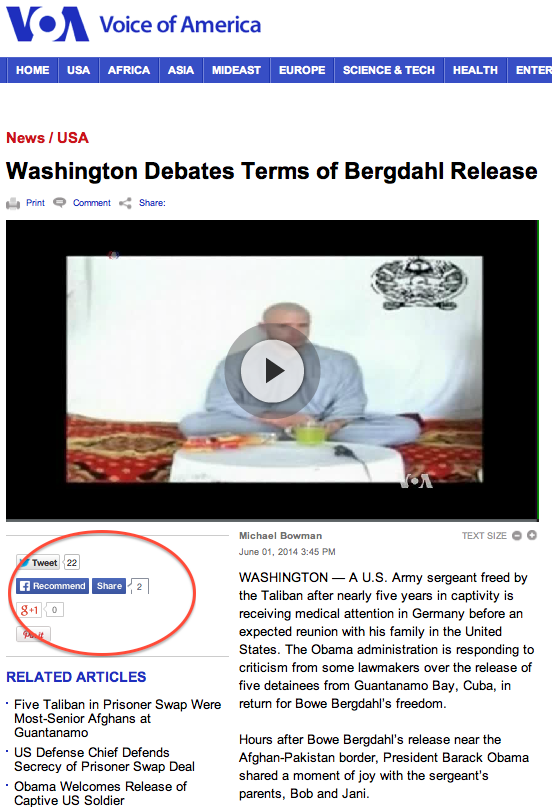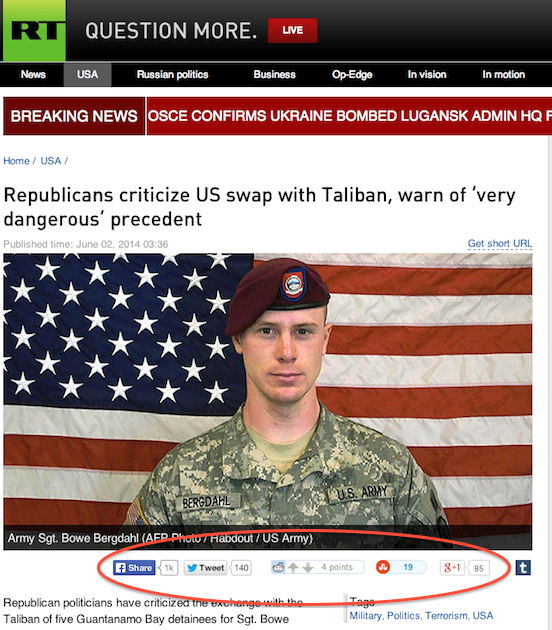
RT report from earlier today, June 2, 2014, dealing with U.S. news, “Republicans criticize US swap with Taliban, warn of ‘very dangerous’ precedent,” had over 1,000 Facebook “Shares,” 140 Tweets, and 85 Google+ as of 2:00 PM EDT Tuesday.
By comparison, a VOA report on the same topic, “Washington Debates Terms of Bergdahl Release – VOA News,” not from today, June 2 as the RT report, but posted by VOA on June 1, is showing only 2 Facebook “Shares,” 22 Tweets and 0 Google+ as of 11:20 AM EDT Tuesday, even though it has been online a day longer than the RT report.
So much for VOA’s social media engagement and digital transformation touted by Voice of America and International Broadcasting Bureau executives.
Russia’s RT beat VOA on this U.S. news 500 to 1 in Facebook “Shares,” 6 to 1 in Tweets and 85 to 0 in Google+.
The RT report had 43 readers’ comments as of 11:20 AM EDT Tuesday; the VOA report on the same topic had none.
There is a bright spot for VOA in social media, but it is not the official Voice of America English News website or its Facebook page. Some individual VOA journalists are making an impact on their own.
Myroslava Gongadze, VOA Ukrainian Service popular television program host, regularly gets over 1,000 Facebook “Likes” for her Ukraine-related posts on her private Facebook page, while VOA English News posts usually get only a few dozen, rarely over a hundred.
Gongadze posts privately because VOA executives failed to provide the VOA Ukrainian Service with adequate resources to frequently update its social media pages and expand its social media outreach. The service, which does not even have enough help to produce its excellent television program for Ukraine, is sometimes hours late posting on social media platforms because it does not have enough people.
Meanwhile, VOA and International Broadcasting Bureau (IBB) senior management spends millions of dollars “developing” digital media for which it has very few experienced journalists left and very little high quality content because many VOA broadcasters had been laid off earlier to pay for digital media, which is essentially free, and replaced by poorly-trained contractors who post online maps showing Crimea to be part of Russia, produce zombie videos, and post feature stories on the British royal family.
That is why many VOA journalists hope that the U.S. Congress will reform the Voice of America management through the bipartisan Royce – Engel U.S. International Broadcasting Reform Legislation, together with the rest of U.S. international broadcasting under the Broadcasting Board of Governors (BBG), especially the IBB, which absorbs 34% of BBG’s budget without producing any programs or any meaningful audience engagement through social media when compared to such competing media outlet as Russia’s RT.
